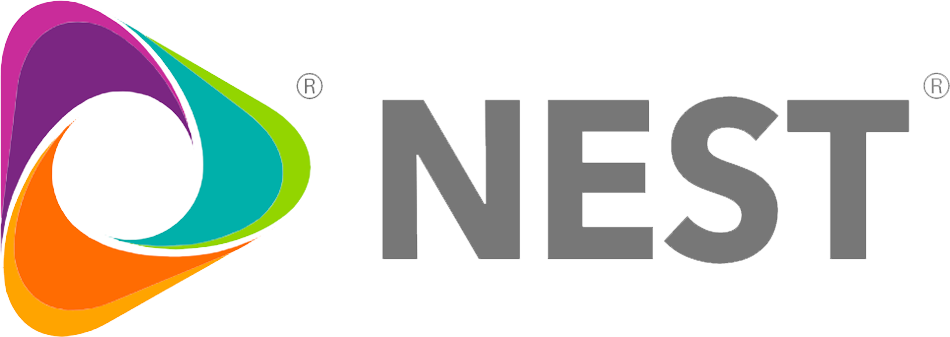It’s time to keep your cool when it comes to HVAC systems.
Last month, Integrated Facilities Management (IFM) pioneer, NEST, launched its 1st Annual IFM Summit with an engaging panel discussion on the increasingly pivotal positions HVAC and energy play in business operations.
Moderated by NEST VP of Client Services, Jason Bishop, the conversation featured insights from leaders throughout the HVAC and energy space. They included: Atlas Electrical, Air Conditioning, Refrigeration & Plumbing Services, Inc. President, Sarah Hammond, who’s also the treasurer at international nonprofit Women in HVACR; commercial HVAC network PremiStar CEO, Joe Kirmser; and energy-as-a-service company Budderfly President, Al Subbloie.
Here are three key takeaways from the session.
#1 If You Don’t Get HVAC Right, Your Business Will Suffer
The panelists underscored the point that HVAC is NOT a commodity, but a complex system at the nexus of energy, corporate cost structure, and organizational success.
Without a high-functioning HVAC system, employees are frustrated, operations are interrupted, customers go elsewhere, costs go up, and leadership gets, well, heated. “HVAC is magic,” explained Kirmser. “It literally takes heat out of the air to cool your facility. How it’s installed, serviced, and cared for greatly impacts your overall cost structure, environment, and customers.”
But often, FM professionals face the challenge of getting corporate leadership to understand HVAC not as a standard asset but as an investment requiring planning.
Hammond’s metaphor helped make that case.
“Think of how much you’re willing to spend on a car,” she said. “It’s not working for you when it sits in the garage or when you’re sleeping at night.”
“HVAC works 24/7,” Hammond continued. “Why wouldn’t you want to invest?”
Why not, indeed.
“[Think of] HVAC as part of your long-term energy infrastructure” added Subbloie. “If you don’t invest now, it will eventually collapse, causing more serious issues later.”
The panelists agreed that HVAC should be evaluated on a Total Cost of Ownership (TCO) basis, which factors in costs throughout the HVAC life cycle, rather than just the purchase price. Over the long term, you’ll spend less with an updated, high-functioning HVAC system.
#2 ESG Is Not Separate From Your Business
“ESG is a freight train that will keep picking up speed,” said Kirmser of the increasing requirement of businesses to report on their environmental, social, and governance impacts within their communities.
Accounting for the effects of business operations is not only a significant concern of a widening range of stakeholder groups一employees, suppliers, customers, partners, and shareholders一it’s also entering the realm of government regulation. Without planning now, doing business will only get more difficult.
What does this have to do with HVAC? Everything.
“HVAC is a leading cause of climate change,” explained Subbloie. “Most home units are likely running on the same RTU [equivalent] they were a decade or more ago一they probably have a SEER [rating] of nine to 13.”
Subbloie underscored the significant improvements in energy efficiency achieved since those earlier days. Units with SEER ratings of 21一a 60% improvement一are common. Investing in an upgrade (commercial or residential) now can save considerable costs later一including those associated with compliance.
“There’s money to be saved by focusing on this now rather than when your unit fails,” he said.
Hammond brought up an essential point about maintenance: With the recent EPA phase-out of R22 Freon and 2023 phase-out of R410A Puron, maintaining systems using these refrigerants will be increasingly expensive. If your system has a refrigerant leak, the cost of replacing the coolant can be in the thousands.
The group then made a final point on the subject: The “G” in ESG covers everything from who and how you hire, promote, incentivize, and communicate. Good governance enables good ESG reporting and good business practices. They are integral to each other.
#3 Labor Shortages Alone Will Drive Up Legacy HVAC Costs
The decline in trades labor, including in mechanical disciplines such as HVAC, was present before the COVID-19 pandemic, but accelerated in its wake.
“The average age of an HVAC technician is over 50,” said Kirmser. “And there isn’t a generation of technicians fully prepared to take their place.”
HVAC is a challenging service to provide well, and until more skilled tradespeople come online, the value of those with experience will grow.
“Legacy systems need more maintenance, which means costs will increase significantly,” added Hammond. “Paying hundreds of dollars an hour may sound crazy today, but when an HVAC is on the line, and you’re losing money because you can’t run your plant, opinions can change.”
The trio agreed that the time to invest in the workforce is now一with more schools, apprenticeships, and training. And in the meantime, plan for the future with updated systems. You’ll spend less over time, be less reliant on scarce labor, and add to your ESG efforts.
Check out the audio link for the entire discussion.
Terms to Know
RTU
Roof-Top Unit. It describes a typical HVAC system for a commercial building in which the coils, compressor, and fan are bundled into a single unit on the roof.
By contrast, home units often have some components inside (fan and evaporator) and some on the outside of the home.
SEER Rating
Seasonal Energy Efficiency Ratio. An HVAC SEER rating is the ratio of the system’s average cooling output divided by the total energy used. A higher SEER rating means more cooling output is produced per energy unit.
Total Cost Ownership (TCO)
A framework typically used for evaluating purchase decisions incorporating an asset’s short-term price (purchase price) plus the longer-term costs and expenses incurred over the asset’s life cycle and ultimate disposal. The full cost of ownership is its TCO.
Learn More About the Panelists
Sarah Hammond, President, Atlas Electrical, Air Conditioning, Refrigeration & Plumbing Services, Inc. and Treasurer, Women in HVACR. Sarah also oversees Hummingbird Trailer Park, maintains an active role in the community on behalf of Atlas, and serves on several boards. Her passion lies in helping women-owned businesses.
Joe Kirmser, CEO, PremiStar. Since joining the company in 2019, Joe has created and overseen the implementation of a new business strategy that has resulted in a 250% increase in revenues, a 300% increase in EBITDA, and 20 acquisitions throughout the country.
Al Subbloie, President, Budderfly. Al has overseen the start-up’s accelerated trajectory as one of the fastest-growing firms in both the energy sector and the United States, as well as a national role model for firms seeking to leverage private sector practices to address climate change issues.







